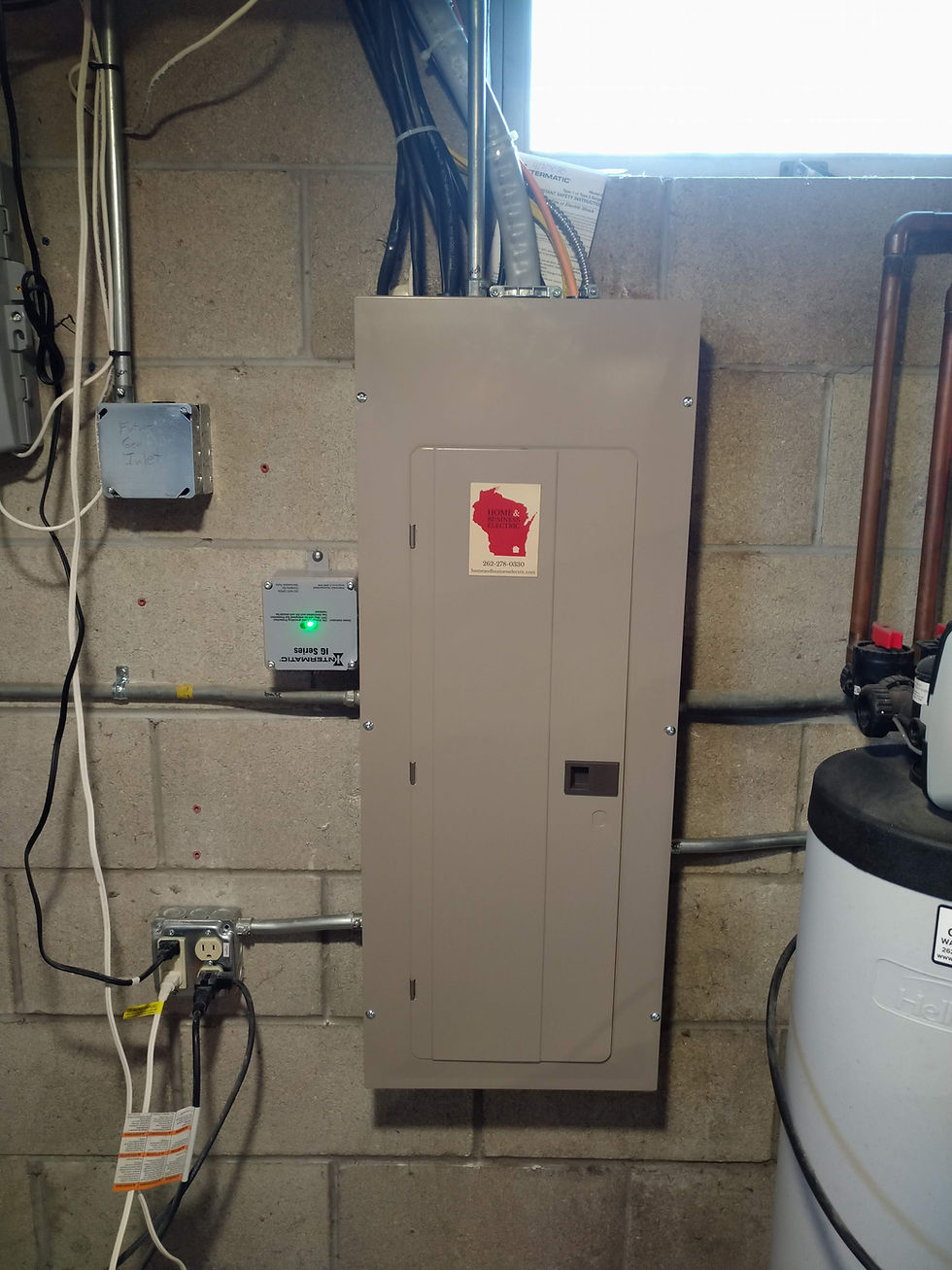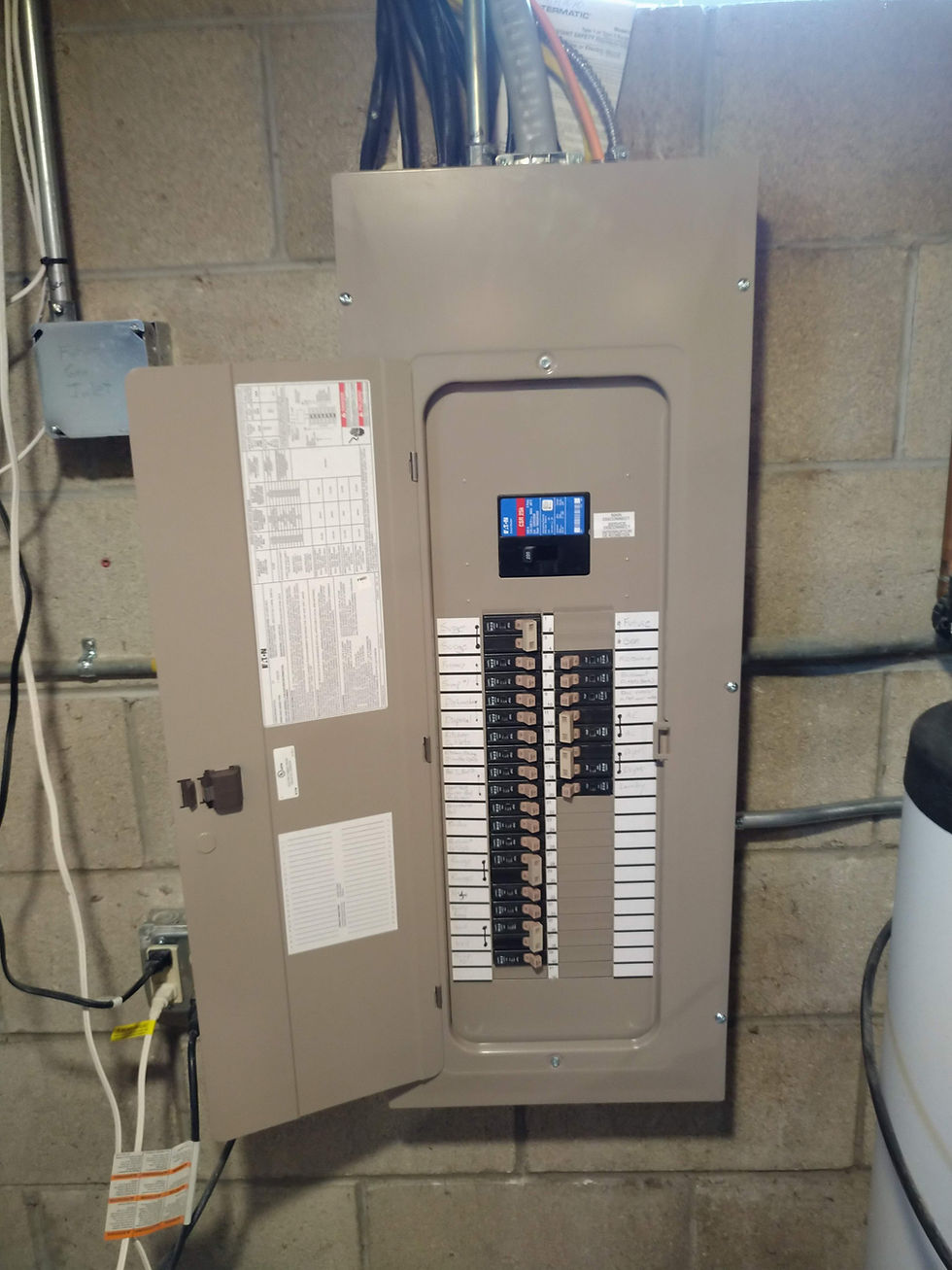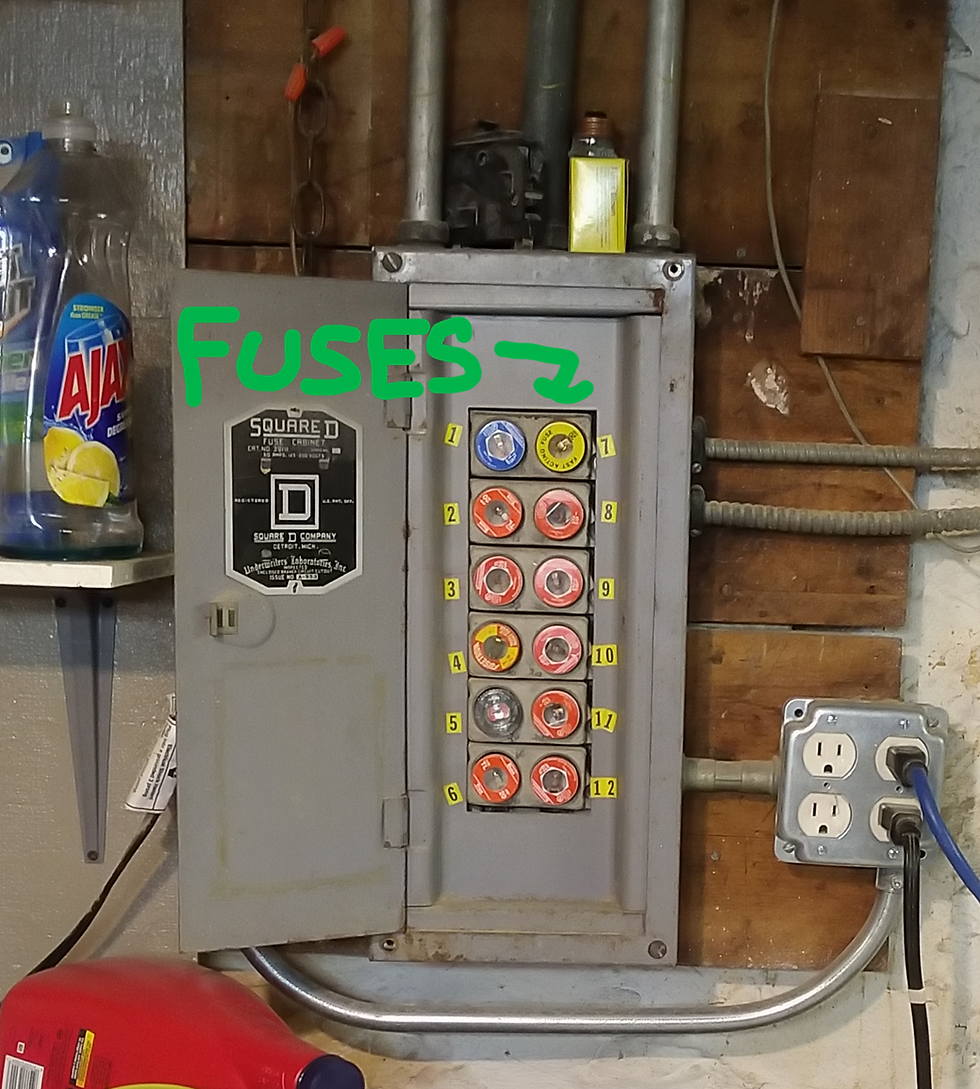Fuse Box vs Circuit Breaker: Safety Insights for Waukesha
- homeandbusinessele
- Jul 24, 2025
- 5 min read

If you’ve ever wondered what keeps your home’s electrical system safe, you’ve probably heard the terms circuit breaker and fuse box thrown around. Perhaps you’re envisioning the metal box in your basement or garage, but you’re not entirely sure how it works or why it matters. Don’t worry—we at Home and Business Electric are here to break it down (pun intended!) in a way that’s easy to understand. As your trusted Waukesha electricians, we’re all about helping you make sense of your home’s electrical setup, so let’s dive into the differences between a fuse box vs circuit breaker, and why knowing this stuff is important.
Understanding Fuse Boxes and Circuit Breakers
What Is a Circuit Breaker?

A circuit breaker is like the superhero of your home’s electrical system. It’s a device designed to protect your wiring and appliances by automatically shutting off power when something goes wrong, like an overload or a short circuit. Think of it as a safety gate that flips to “off” to prevent electrical fires or damage.
In most modern homes here in Waukesha, you’ll find a circuit breaker panel (sometimes called a breaker box) tucked away somewhere like the basement, utility room, or even the garage. Inside that panel are rows of switches, each controlling a specific circuit in your home—like one for your kitchen, another for your living room, and so on. If your lights flicker or an appliance acts up, a tripped circuit breaker is often the culprit, and resetting it is usually as simple as flipping the switch back on (after figuring out what caused the trip, of course!). However, if you notice rust on your circuit breaker, it’s a red flag for water damage. Rust can compromise the breaker’s ability to function safely, and it’s a sign you should call Home and Business Electric to replace it as soon as possible.
What Is a Fuse Box?

Now, let’s talk about the fuse box, which is more like the circuit breaker’s older cousin. Fuse boxes were common in older homes built before the 1960s, and some older Waukesha properties—like those charming historic homes in the downtown area—might still have them. Instead of a switch mechanism, a fuse box uses fuses, which are small devices with a metal filament or wire inside. When too much current flows through, the filament melts, breaking the circuit and stopping the flow of electricity.
The catch with a fuse box? Once a fuse blows, you can’t just reset it—you have to replace it with a new one. That means keeping a stash of spare fuses on hand, which can be a hassle. Plus, fuses aren’t as precise as modern circuit breakers, so they might not always catch issues as quickly. And just like with circuit breakers, rust in your fuse box is a serious issue—it’s a clear sign of water damage, and you’ll want to have it replaced to keep your home safe. The team at Home and Business Electric can help you assess and upgrade if needed.
Key Differences Between Fuse Boxes and Circuit Breakers
So, what sets these two apart? Here’s a quick rundown to help you see the big picture:
How They Work: A circuit breaker is reusable—you flip it back on after it trips. A fuse box relies on single-use fuses that need to be replaced every time they blow.
Convenience: With a circuit breaker, you’re back in business with a quick reset (assuming the issue is resolved). A fuse box requires you to have the different types of fuses on hand (as they vary by size and type), which can be a pain if you’re not prepared.
Safety and Precision: Modern circuit breakers are designed to detect a wider range of electrical issues, like ground faults or arc faults, making them safer for today’s homes. Fuses are a bit more old-school and less sensitive to certain problems.
Age and Availability: If your Waukesha home has a fuse box, it’s likely an older property. Most new homes and renovations use circuit breaker panels because they’re more efficient and meet current electrical codes.
Why Waukesha Homeowners Should Care
If you’re living in one of Waukesha’s older neighborhoods—like around Carroll University or along the Fox River—you might still have a fuse box powering your home. While they can still work fine, they’re not always up to handling the demands of modern appliances, like your high-powered HVAC system or that fancy new electric range or car charger. A circuit breaker panel, on the other hand, is built to keep up with today’s electrical needs, offering better protection and easier maintenance.
Plus, if you’re thinking about selling your home, buyers (and their inspectors) might raise an eyebrow at a fuse box—especially if it’s showing signs of rust, which screams water damage. Upgrading to a circuit breaker panel can boost your home’s value and give you peace of mind. And here’s a pro tip: If your circuit breaker keeps tripping, your fuses are blowing often, or you spot rust in either system, it’s time to call Home and Business Electric. It could be a sign of outdated wiring, water damage, or an overloaded system.
Should You Upgrade from a Fuse Box to a Circuit Breaker?
If your home still has a fuse box, you might be wondering if it’s worth upgrading to a circuit breaker panel. Here’s the deal: While a fuse box can still do the job, it’s not always the best fit for modern life—especially if it’s rusty, which is a sure sign of water damage that could lead to bigger problems. If you’re renovating, adding new appliances, or want a safer, more reliable system, switching to a circuit breaker is a smart move. It’s an investment in your home’s safety and functionality, and it can save you from the hassle of hunting down fuses in the middle of a Wisconsin winter storm!
Not sure what’s in your home or whether it’s time for an upgrade? The experts at Home and Business Electric can take a look, assess your setup, and recommend the best path forward. We know every home is different, and we’re here to make sure yours is safe and powered up for whatever you need.
Fuse Box vs Circuit Breaker Wrap Up
Knowing the differences between fuse boxes and circuit breakers is important for homeowners in Waukesha. When you understand how each one works, you can help protect your entire home from overloads and short circuits. Modern circuit breakers offer a good, safe choice for your appliances. These are safer and more reliable than older fuses. Technology keeps moving forward, so it is smart to look at your electrical system often. This helps you have peace of mind and cuts down on downtime from blown fuses.
Got questions about your fuse box or circuit breaker? Worried about rust or frequent trips? Give Home and Business Electric a call! As your local Waukesha electricians, we’re here to help with expert advice, upgrades, and repairs to keep your home’s electrical system in top shape. Check out more tips and insights on our blog at the Home and Business Electric website, like this one about adding LED wafer lights to your home or business!





Comments